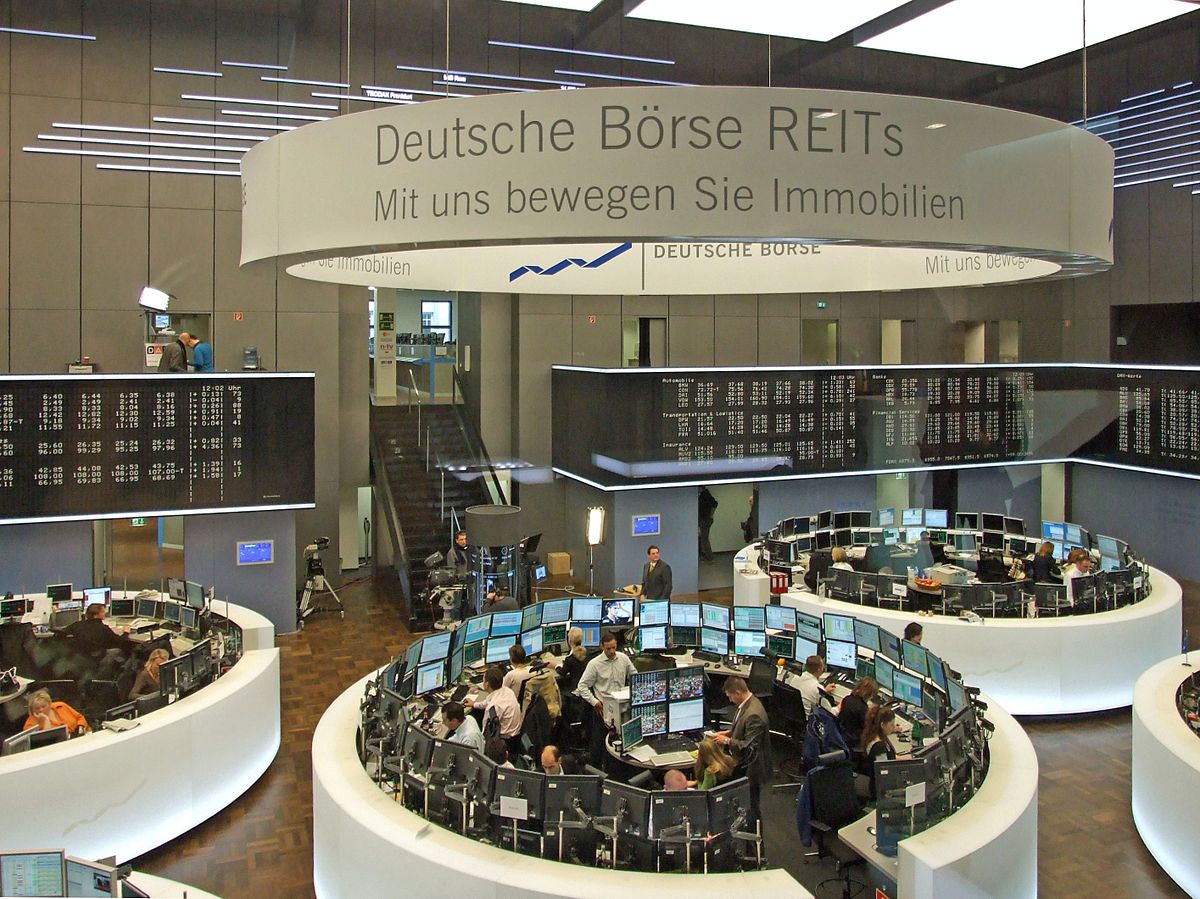Stock exchange boards in Frankfurt and London have announced a €30 billion “merger of equals”. Deutsche Börse shareholders will own 54% of the new holding company with the London Stock Exchange (LSE), having paid a premium for control, but the head office will be in London and there will be equal board representation. What matters more than equality for this deal though is that it creates an effective new exchange.
The benefits are being aired as €450m of administration savings, mainly in IT, and benefits of €9 billion for customers from reducing the requirements for trades that are currently regulated on both exchanges. The new exchanges powerhouse will have almost 10,000 employees and will list around 3,200 companies with a market capitalisation of €7.1 trillion. In the context of these figures the savings seem rather meagre.
The real issue is achieving a scale to compete globally against larger US exchanges that have already merged. Europe needs a strong champion to compete against them and Hong Kong. Growth expectations are greater for the opponents and both LSE and Deutsche Börse will not be big enough to attract the major listings and trade on their own.
For the deal to go through, both competition authorities and shareholders will have to be convinced. It will create the continent’s biggest exchange. In the past European competition authorities have tended to see such mergers at a European level. It therefore helps to not present the deal as a takeover. To keep shareholders sweet, they will have to be convinced of the benefits of the deal and that there are no unwanted complications of a possible Brexit.
Equality and effectiveness
While promoted as a “merger of equals”, in practice such arrangements rarely work. Both the chairman and finance director are from the LSE and the deputy chairman and chief executive are from Deutsche Börse. The large board of 16 will consist of eight directors from each business.
Large boards are often unworkable, particularly when difficult decisions are needed to implement substantial cost savings. Redundancies are reportedly to be allocated equally between London and Frankfurt. Doubts are already gathering, however, that the cost savings will be made, as is frequently the case with acquisitions.
Shareholders are predominantly based in the US and will want to see decisive management to ensure the success of the new holding company. They may be disappointed. So-called mergers of equals usually result in a lack of clarity in direction and leadership as both camps jockey for influence. One result is a confused structure and a failure to drive cost savings and revenue opportunities arising from the merger. This situation can often persist for some time before investor pressure results in one camp taking overall responsibility and addressing the necessary savings.
Famous mergers of equals include the Daimler-Chrysler deal which suffered from a lack of clarity in leadership and eventually resulted in the disposal of Chrysler for a fraction of the original price. More recently there was the merger of cement heavyweights, Lafarge and Holcim, which was similarly billed and involved a sharing of the top jobs. This resulted in poor performance and a lack of merger benefits for the newly created LafargeHolcim. The clash of strong German and French cultures has not helped either. The existing management teams continue to exist with no clear dominant force to drive benefits and direction.
Keeping the competition at bay
This deal between the LSE and Deutsche Börse may not be quite as rosy as the financial PR suggests, however. The merger’s emphasis on being one of equals could be designed to avoid upsetting staff, directors and, indeed, competition authorities who have yet to approve the deal. In reality it may well be a German takeover which has to be framed as an equal merger to avoid reaction to any potential weakening of the UK in the global financial sector. The UK government will be very sensitive to the transfer of control to Frankfurt.
There is also the sensitivity of staff based in both Frankfurt and London who will not want to hear of substantial savings that inevitably will be borne by personnel. A rapid exodus of the best talent could ensue before integration proceeds.
Equal or not, the new holding company will have to ensure it hits the ground running. Another one of the world’s largest market operators, the Intercontinental Exchange (ICE), has also said it is considering making a bid for the LSE. Clearly it is now or never for ambitious exchanges seeking growth. The industry is consolidating and exchanges will want the benefits of scale and scope relative to their competitors.
Acquisition of the LSE would give ICE a strong foothold in Europe and importantly another time zone. Shareholders may well believe that ICE is more likely to achieve the cost savings and provide greater clarity of leadership and direction and side with it as a result. ICE may also be willing to offer shareholders a cash element.
So, whether or not the LSE-Deutsche Börse merger is one of equals or not, there are no guarantees of its ultimate success.
 John Colley does not work for, consult, own shares in or receive funding from any company or organization that would benefit from this article, and has disclosed no relevant affiliations beyond the academic appointment above.
John Colley does not work for, consult, own shares in or receive funding from any company or organization that would benefit from this article, and has disclosed no relevant affiliations beyond the academic appointment above.
John Colley, Professor of Practice, University of Warwick
This article was originally published on The Conversation. Read the original article.




 FxWirePro- Major Crypto levels and bias summary
FxWirePro- Major Crypto levels and bias summary  Nasdaq Proposes Fast-Track Rule to Accelerate Index Inclusion for Major New Listings
Nasdaq Proposes Fast-Track Rule to Accelerate Index Inclusion for Major New Listings  JPMorgan Lifts Gold Price Forecast to $6,300 by End-2026 on Strong Central Bank and Investor Demand
JPMorgan Lifts Gold Price Forecast to $6,300 by End-2026 on Strong Central Bank and Investor Demand  BTC Flat at $89,300 Despite $1.02B ETF Exodus — Buy the Dip Toward $107K?
BTC Flat at $89,300 Despite $1.02B ETF Exodus — Buy the Dip Toward $107K? 
































